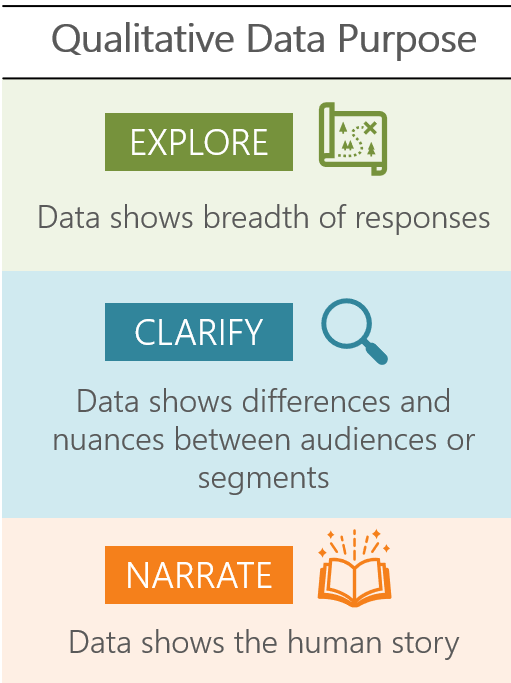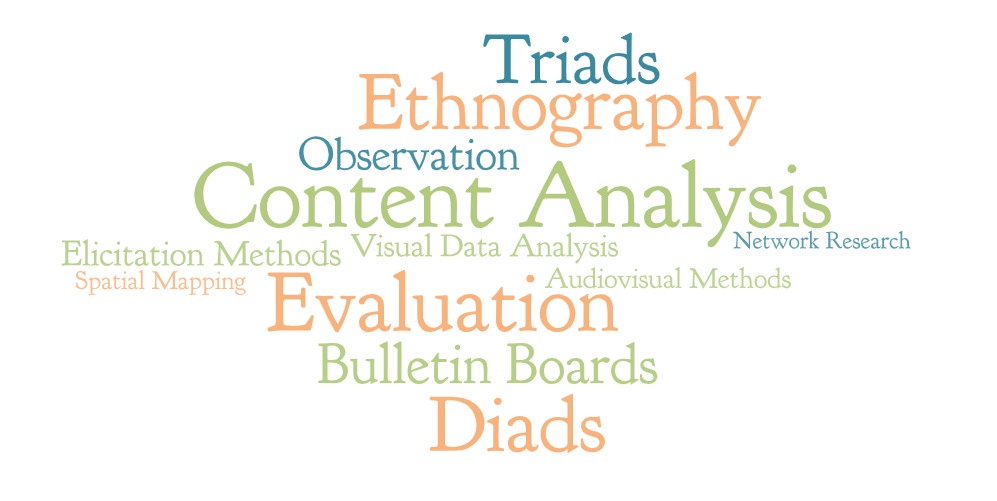What is Qualitative Data?
8/13/20 / Caitlin McAteer


According to the Qualitative Research Consultants Association, qualitative data “uses in-depth studies of small groups of people to guide and support the construction of hypotheses.” While qualitative research methodologies are based in social and behavioral sciences like anthropology and psychology, many approaches and techniques can be applied to market research.
Qualitative data differs from quantitative data in numerous ways. Conceptually, qualitative data helps to:
- Uncover the values and beliefs of individual life experiences,
- Share how reality depends on a person’s point of view, and
- Understand the nuances of individual experiences.
This differs from quantitative data, which aims to:
- Measure values and beliefs of a population of people,
- Make relative and absolute comparisons between groups, and
- Reveal broad patterns among large groups of individuals.
Qualitative data is anecdotal; this means it is based in stories and responses to questions that are analyzed for underlying themes. Alternatively, quantitative data is closed-ended and has only specific response options for participants to choose from, which enables numerical and statistical analysis. When people think of quantitative data, they typically think of closed-ended survey questions. In comparison, qualitative data often bring focus groups and interviews to mind.

How does Corona use qualitative data?
A researcher’s use of qualitative data depends on the overall research question. As with quantitative data, an individual must make sure that he or she is collecting data that aims to answer a specific question. As discussed in a previous blog, researchers at Corona Insights ask whether anecdotal data will help us explore a concept, clarify a trend we already know, or narrate a more complete picture of a given situation or context before choosing a specific research methodology. Once the purpose of the qualitative data is identified, we then pick a qualitative research approach that best fits the needs and goals of a specific project.

Beyond focus groups and one-on one interviews, Corona Insights has many qualitative data methodologies in our research toolbox. A few of our favorites for creatively meeting the specific needs of our individual clients, projects, and research goals are visualized below.
